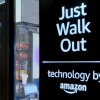Twenty years ago, Microsoft was found to be guilty of violating federal anti-trust laws. The case could not have been any more high-stakes. At the time, Microsoft was one of the world’s most innovative and profitable companies and Bill Gates was largely considered the wealthiest man on the planet.
The lawsuit found that Microsoft was boxing other internet browsers out of the market in order to ensure that its own, Internet Explorer, would reign supreme.
Setting aside, well, the legacy of Internet Explorer for a moment, there are many aspects of the Microsoft Antitrust case that seem to foreshadow trouble for another digital innovator: Amazon.
See, Amazon is launching an initiative called One Vendor which tells companies that they can no longer sell directly to consumers on Amazon Marketplace. Instead, Amazon expects the brands to sell on Amazon Retail, thus losing some of the benefits of the Marketplace listing (including the ability to determine price and appear at the top of search results).
Recode’s investigation notes, “Amazon is these brands that they can no longer sell directly to customers as an independent seller on the Amazon platform for third-party merchants known as the Amazon Marketplace… Instead, [Amazon] is telling brands that they can only sell items to Amazon’s retail group at wholesale cost, and let Amazon act as the seller and determine the retail cost.”
Third-party sellers who contract will Amazon are still able to sell these products, even if the products’ original companies are not partnered with Amazon. The move effectively cuts corporations that don’t want Amazon to set the terms of their sales out of the picture.
The move is similar to Microsoft in 1998. Back then, Microsoft controlled the three major aspects of the internet: operating system, applications, and browser. Amazon controls the actual market (its main website), the mechanisms of the marketplace (its selling apparatus), and almost has complete control over discoverability.
Technological giants like Microsoft and Amazon are able to reach these heights largely because they are creating innovative technology at a pace faster than legislators and litigators can understand it.
However, the longer that constituents live in a world that is increasingly controlled by these forces, the more politicians are forced to understand the reality of the power they wield.
If more people start paying attention and speaking out, will Amazon legally be able to maintain this level of control?
AprilJo Murphy is a Staff Writer at The American Genius and holds a PhD in English and Creative Writing from the University of North Texas. She is a writer, editor, and sometimes teacher based in Austin, TX who enjoys getting outdoors with her handsome dog, Roan.













































Pingback: Amazon is on a head-on collision with politicians as they strengthen their monopoly - The American Genius